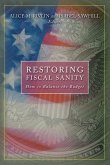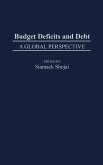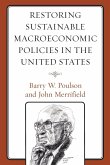Restoring America's Fiscal Constitution estimates the potential impact of new fiscal rules on the U.S. economy over the next two decades. The new rules would require a cyclically balanced budget and an expenditure limit. The study shows that over the forecast period, the budget could be balanced and the total debt-to-GDP ratio reduced to the 60 percent tolerance level under this scheme, but this fiscal consolidation can only be achieved using a combination of fiscal reforms that go far beyond what has been proposed by Congress and the President. The first chapter explores the theoretical foundations of a fiscal constitution. The orthodox public finance view of public debt is contrasted with a public choice perspective. This is followed by chapters surveying the new fiscal rules enacted in other countries to address debt issues. Several chapters provide a historical perspective on U.S. debt, including a critical appraisal of our fiscal rules. New laws are proposed to address the debt crisis, and a dynamic simulation model is used to estimate the impact of the proposed laws on the U.S. economy. The final section provides a roadmap for enacting the proposed constitutional and statutory fiscal rules.
Hinweis: Dieser Artikel kann nur an eine deutsche Lieferadresse ausgeliefert werden.
Hinweis: Dieser Artikel kann nur an eine deutsche Lieferadresse ausgeliefert werden.








